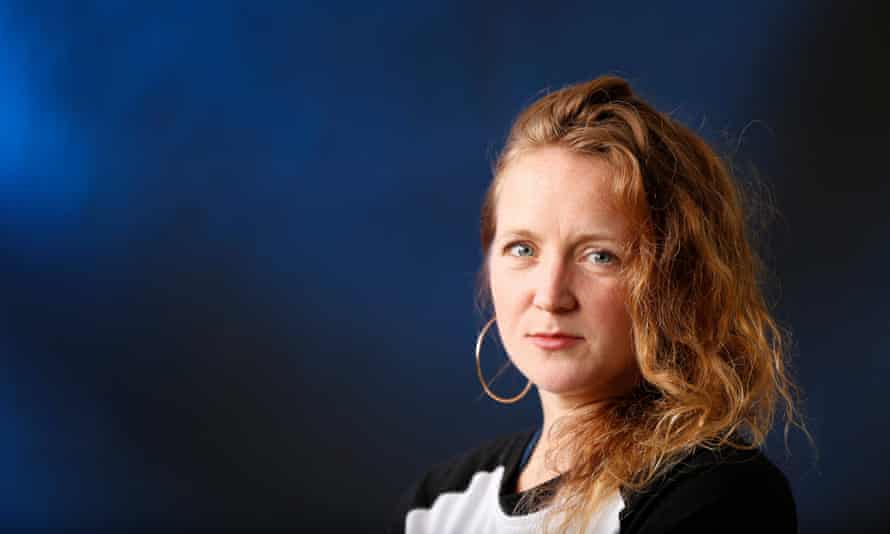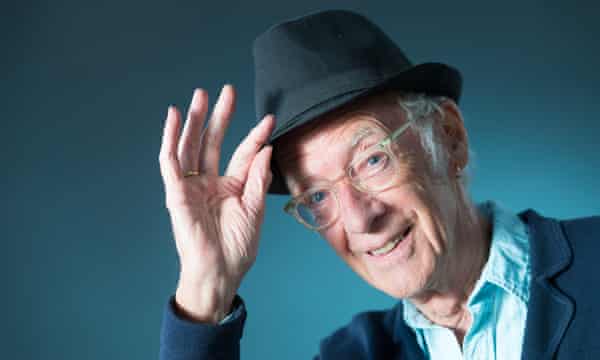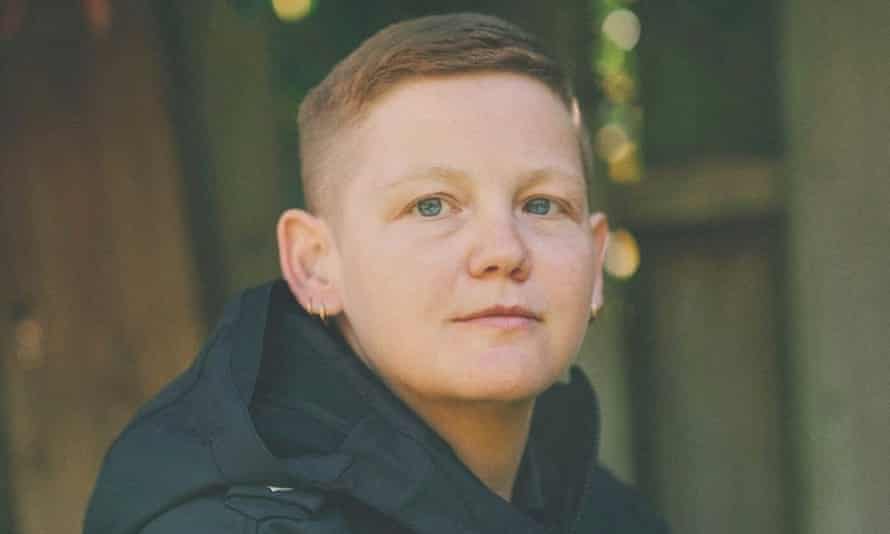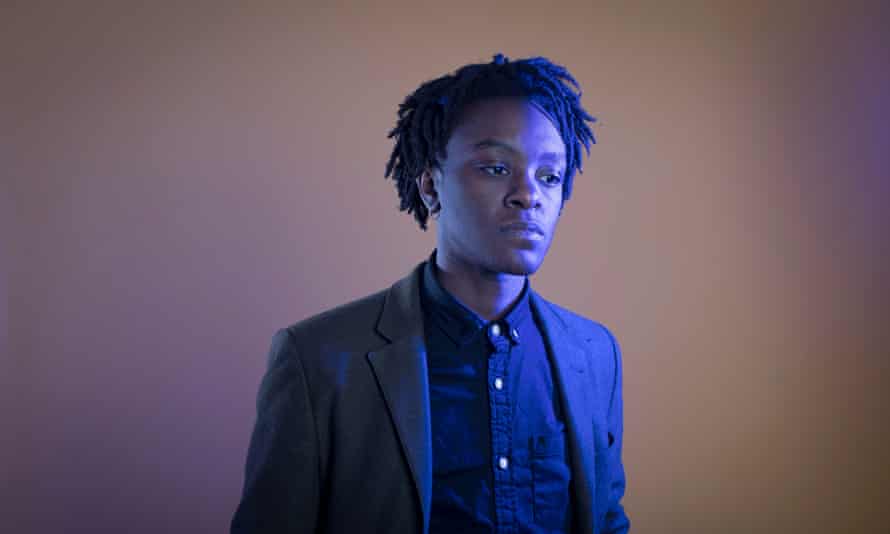Windows on the world: pandemic poems by Simon Armitage, Hollie McNish, Kae Tempest and more
Six of the UK’s best poets reveal exclusive new work and reflect on the last year, losing relatives, long-distance relationships and ‘artistic claustrophobia’
Simon Armitage, Hollie McNish, Roger McGough, Kae Tempest, Jay Bernard and Raymond Antrobus
Sat 8 May 2021 09.00 BST
“The sky stretched thin…”
by Simon Armitage
The sky stretched thin
over the frame
of day.
Downdraft and throttle -
the air ambulance carving
its high yellow arc,
the millpond ronkled, jittery,
wood pigeons rousted
out of the wood,
an embarrassed fox
in its winter coat,
flushed from the copse.
Night hunched
in the east, ready
to fill in the gaps.
I’m watching all this
through
bullet-proof glass.
Simon Armitage
I was just about the busiest I’d ever been when lockdown arrived, so it was a huge change, and some of that’s been quite good for me. I’ve slowed down, I’ve caught up with a lot of deadlines. But from a creative point of view, everything has just become a little bit overfamiliar. I’ve written three poems about my Velux window. And there’s probably more to come.

“The Sky Stretched Thin” is typical of the kind of poem that I’ve been writing. It starts with a look out of the window in the morning and a bit of a sigh. “Here we go again.” On that day, there was an air ambulance, which ruffled the feathers of the environment around it and ruffled my feathers a bit, too. I saw it as a token of the emergency that’s going on, but also the fact that it’s slightly anonymised for a lot of people. There’s both a sense of something urgent happening and being somewhat detached from it.
What I’ve really missed are the chance encounters and accidental collisions and ear-wigging. The unexpected. I miss my friends, going out for a meal, a drink, getting on trains, seeing the world go past through the window. I miss giving readings and travelling: picking up different feelings and ideas and getting that chance to express yourself outwardly. Not being able to do that has become a kind of artistic claustrophobia.
-------
chasing ceremony/convincing myself
by Hollie McNish
i’ll not get to your funeral.
that’s fine.
i know you’ll not make mine.
you hate the fussing anyway.
your favourite colour’s yellow
not black.
on your street, when next door died
too soon before you did
neighbours clapped the passing hearse
as if the corpse were on a royal tour
you turned towards your daughters
here –
don’t you dare do that for me
hair cradled into rollers
each night until the night you left
still lifting life with curls
the laws do not allow me
to stand and watch a lifetime
exit puppet-show-sized curtains
as tears try to console each other
two metres apart;
the only good things
are the sandwich platters
afterwards, anyway,
and we can’t even have those
so i’ll celebrate you here
three hundred miles from home
wear that butter-coloured jumper
you once said made me pretty
wallow in self-pity
as if your loss is all my loss
let lips tremble all they want
eyes swell to embarrassed red
too obvious a grief to meet with any friends
even with the recommended
coffin space between us
no need for all that, huh?
who cares about it, right?
i already said i love you
so many times in life:
each time i said i love you;
each postcard that i sent;
each nightie that you lent me;
each evening that we wasted
watching prerecords of countdown
at a volume that i’m almost sure
has pierced some of my eardrum;
in refining just that splash of milk
to slightly hint your tea with
till you looked inside the cup again
and smiled, and said that’s perfect
Hollie McNish

My maternal grandmother died during the coronavirus pandemic. She was my last surviving grandparent and one of the people I’ve felt closest to on this small, spinning planet. As with many other people grieving loved ones, I watched her funeral on a live stream.
As the allotted time grew closer and a looped video of a calming waterfall assured me that my internet connection was working, I began panicking about what to wear, where in my house to sit, whether to have a glass of prosecco or a cup of tea, as if these decisions were important. I was watching it on my own. I wondered what other people across the world were wearing and eating at funerals now that no one could see them disrespecting traditions.
In the end, I stayed in tracksuit bottoms, put on a jumper I think she liked and sat on the couch eating a Tunnock’s wafer dipped in very sugary tea, listening to the story of her life whilst staring at a coffin and the back of my mum’s and auntie’s heads two metres apart above the top of wooden pews.
I also, half by accident, half because I was busy crying, forgot to switch off the live stream once the funeral was over. I assumed it would cut off by itself. So I also watched the cleaners disinfecting the crematorium, the local reverend and organ player taking off their jackets, unwrapping and eating sandwiches and chatting about the care home possibly reopening to visitors, and then I watched half of the next person’s funeral.
The speeches about my grandma were beautiful. Some of the lines from the reverend, such as, We would normally sing now, but because of the virus we are not permitted to sing in public or, Before we run out of streaming time, made it feel a little like a dystopian sci-fi film.
After the funeral ended, I watched my mum walking out of the building and all I wanted was to be there. I didn’t think I’d crave seeing other people’s faces in the flesh so much.
I made another cup of sweet tea and wrote some poems.
There’s a comfort I find in writing that I don’t get from much else: trying to find desirable words to frame thoughts on to a page; playing with metaphors; deciding which silences merit line breaks or commas or dashes or just a little more blank page all to themselves. Like moulding and carving clay. Like that scene in Ghost where Patrick Swayze sits behind Demi Moore and kisses her neck while she tries to make some sort of vase on her pottery wheel in the middle of the night because she can’t sleep.
I guess in this metaphor, Patrick Swayze’s hot, half-naked body behind me represents the comfort and excitement that the writing process gives, and the clay lump spinning in my palms is the scattered ideas, which at some point I can hopefully mould into whatever poetic shape I am able.
I really like the idea of poetry as pottery, but thinking about that particular scene more carefully, it is maybe not the best metaphor.
Demi Moore is actually a very skilled potter and when Patrick Swayze comes and sits behind her, he fucks up the vase she’s already almost completed so that instead of finishing her creation they end up rubbing wet clay into each other. Nonetheless, the thought of that scene is a nice tangent from grief and one which I think my gran would have approved of because she fancied Patrick Swayze as much as I did.
Writing is distraction and focus in one. It also seems a bit sick sometimes: selfish, self-centred, narcissistic. Like, That’s a good line about your grandma’s funeral, yeah, nice, Hollie, keep that bit in the poem.
Most of the poems I write are primarily for myself: to ease pain; to heal; to reorganise anger; to giggle; to think more clearly; to convince myself of feelings that maybe weren’t quite true; to have fun; to play with language; to imagine alternative realities; to wallow; to question; to reconsider; to remember; to give some sort of shape to things that overwhelm me.
Like death. Like birth. Like how it feels watching a funeral live-streamed into your living room. Like the desperate yearning I now have, to mould a pot out of a chunk of moist clay whilst being tousled from behind by a horny lover.
Slug by Hollie McNish is published on 13 May (Hachette)
-------
Seaside Staycation
by Roger McGough
We made it to the beach at 5am and set about our tasks.
Mine to erect the windbreaker using anti-bacterial masks
The kids to build sandcastles in a circle round our plot
While my wife dug out the trench then went to fetch the Rot.
(We call it Ruby, though the dog is a he,
as fearsome as a borrowed rottweiler can be.)
Safe in our bubble, no super-spreaders we,
Anti-social distancing we had down to a T.
Lying low on our lilos, the kids on their phones
Ruby barking at seagulls or gnawing at their bones.
At 8 a.m., music blaring, we were settled and prepared
To scare away the vanguard of the incoming herd.
The union jack fluttering marked our domain
When, at 8.15 precisely came the first drops of rain.
What began as a breeze turned into a gale
The spatter of raindrops, the staccato of hail.
A hurricane in a hurry came within reach
As clouds retched and vomited all over the beach.
The trench filled with water, the sandcastles subsided
When the windbreaker took flight, we took fright and decided
Enough was enough, so we lowered the flag
Wrapped it round our pasties and stuck it in the bag.
The car park, a marina with a single white boat
Our van as it happens, already afloat.
Seaside staycations? Never again.
The day after tomorrow we’re leaving for Spain.
Safety in Numbers by Roger McGough is published in November (Viking)
Roger McGough

I was looking forward to 2020. I’d been writing poems about the end of 2019, referring to things like bushfires, Trump and Brexit, thinking, “Well, let’s hope for something better in the new year.” I didn’t want to write poems about the pandemic, but there are things, inevitably, about that. “Seaside Staycation” is just about the idea of this Little Englander, claiming his corner. It’s all from my imagination – I can’t drive, can’t put tents up, we haven’t got a dog. But when I was a kid we’d always have “staycations”. We’d go to New Brighton for the day. My dad worked at the docks; if you had a week’s holiday, you’d repaint the bedroom.
I consider myself lucky. I’ve had time to revisit poems; I do a lot of walks and I jog. I mean, I dawdle, quickly. I’ve been looking forward to getting back to the pub and trying out poems on my mates. They’ll go, “Oh god, yes please Roger. Here we go again.”
-------
2020
by Kae Tempest
What scope is there for hope?
We wonder with our slogans worn like collars at the throat
Noah stood back from the boat
Drowning in the doubt that his own hands could make it float
Kae Tempest

This poem came out of the year we’ve all had. It was longer. I realised these four lines were all the poem needed. Sometimes it takes writing the thing to know what it is you are trying to write.
-------
Text and Image
by Raymond Antrobus
Tabitha; y haven’t u told me u luv me
Raymond; I’m literally writing you love poems
you’re trying to send me a portrait
of a lady on fire but the link won’t load
so I don’t know what it shows
and you’re in the cinema rustling
in the dark and we think we aren’t
doing things the old way, our marriage
is new age, no more you complete me crap,
have your own life and I have my life
and it’s tricky and easy while we’re doing
long distance but how can I show you
my love is unfolding if my words
can’t reach you glowing and wild?
All The Names Given by Raymond Antrobus is published in September (Picador)
Raymond Antrobus

My wife, Tabitha, and I got married in April 2019. She is from New Orleans, so we moved there for a few months before I came back to London to sort my green card application. That was when the pandemic hit. We were separated for nine and a half months.
This poem came out of the text messages we were sending back and forth. We were really making an effort to schedule dates, to cook together or watch films. Being apart for so long wasn’t easy. Just before lockdown, Tabitha and I had made a plan to watch Portrait of a Lady on Fire when I was back in the US. Because I was stuck in the UK, she watched it without me and I caught up afterwards. I wrote this poem the next day.
When we were reunited, there was a nervousness – like, would we meet and realise that this wasn’t what we thought it was? It was the ultimate test, but we got to the other end.
I had a little debate about what to keep private and what to make public. But I had also filled out a form giving the US government permission to check everything in my emails and social media, to verify that we are in a real relationship. As we speak, I am about to go into my rescheduled green card interview and I have about 800 pages of all the text messages we’ve ever sent each other. When going through the immigration process, you are at the mercy of this machine. For me, this was a way to take some control. It is an antidote to be able to do something creative with a soulless process. Underneath all this stiff legal language is: two people love each other.
-------
Pollen
by Jay Bernard
I order flowers for my mother’s dead mother.
I remember my father’s father died too
but I do not send him any flowers.
Of what provenance
my mother’s crowd of keepers,
my father’s single room?
I light neither father candles
and grow more like them.
I disappear when too remembered.
-------
Jay Bernard

Two of my grandparents died in 2020. That’s life – life is death. My grandfather died first, in the first wave of care home deaths in April. Whether he got Covid and died, or something else, we’ll never know. Then my grandmother died in December, in Jamaica, at the age of 95; she made a good run of it. And this poem came from that. I wrote it around Christmas time and it came to me almost as is.
In the poem, you have these two masculine men – my grandfather and my father – and I light candles for neither of them, but I do send flowers for my grandmother. The question is: why is that? This is the emotional landscape that a lot of the men in my family occupy. You don’t send flowers, you don’t emote. And “I grow more like them” is about my own masculinity, which is never going to be fully recognised or accepted by these people. And yet, it is informed by them.
This year I’ve actually written more than usual. My collection Surge was published in 2019 but the pandemic cut its life in half. Usually there would be about 18 months of readings and taking the book on tour, but 2020 was a dead year. This had its drawbacks but also its benefits. I was able to start thinking about things that hadn’t made it into the book. Also, I wouldn’t show my work to people before, because that was quite scary in my mind. Now I feel more confident and entitled to do that. If the pandemic has taught us anything, it is: drop the perfectionism, because it’s not working for you, or for me.
I see this poem as being enabled by the moment. It’s like when you read war poetry, or any other work that is from a significant time. We know that XYZ was going on historically, but the poem is still that person’s day-to-day preoccupations. It is a shard of the grander, historical moment.
THE GUARDIAN


No comments:
Post a Comment